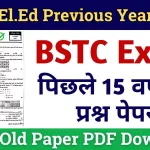BA LLB previous year question papers play an essential role in exam preparation. They give students an idea of the format and types of questions that could appear. This article provides a comprehensive set of questions and answers for various subjects, aiding students in their studies.
Constitutional Law
Question: What is the difference between a state and a government in India?
Answer: The state is a broader concept, referring to the nation and its various institutions, whereas the government refers to the specific set of elected representatives and officials running the state at any given time.
Question: Explain the basic structure doctrine of the Indian Constitution.
Answer: The basic structure doctrine states that certain fundamental features of the Indian Constitution cannot be altered or amended by the Parliament. This includes democracy, federalism, and the rule of law.
Question: What is the significance of the Preamble in the Indian Constitution?
Answer: The Preamble outlines the objectives of the Constitution and reflects the principles on which the Indian state is based. It includes values such as justice, liberty, equality, and fraternity.
Question: Define judicial review.
Answer: Judicial review is the power of the judiciary to review laws passed by the legislature to ensure they are in conformity with the Constitution. It ensures that laws are not unconstitutional.
Question: What is the difference between Fundamental Rights and Directive Principles of State Policy?
Answer: Fundamental Rights are enforceable by courts and guarantee individual freedoms, while Directive Principles are non-enforceable guidelines for the state to follow in making laws and policies.
Question: What are the different types of emergencies under Article 352 of the Indian Constitution?
Answer: Article 352 allows for three types of emergencies: National Emergency, State Emergency, and Financial Emergency, each triggered by different circumstances like war, internal disturbance, or financial instability.
Question: Explain the concept of separation of powers.
Answer: The separation of powers refers to the division of governmental responsibilities into distinct branches: the legislature, the executive, and the judiciary, each with its own powers and responsibilities.
Question: What is the role of the President of India in the context of emergency powers?
Answer: The President of India has the power to declare a national, state, or financial emergency, which temporarily alters the balance of powers between the central and state governments.
Question: Describe the power of judicial review in the Indian context.
Answer: Judicial review empowers the judiciary to examine the validity of legislative actions and executive orders, ensuring they do not violate the Constitution.
Question: What is the procedure for impeachment of the President of India?
Answer: The President of India can be impeached by Parliament for violation of the Constitution, through a resolution passed by a two-thirds majority in both Houses of Parliament.
Family Law
Question: What is the concept of marriage under Hindu law?
Answer: Marriage under Hindu law is considered a sacred union that cannot be easily dissolved. It is a lifelong commitment with spiritual, social, and legal significance.
Question: What are the grounds for divorce under the Hindu Marriage Act, 1955?
Answer: Grounds for divorce under the Hindu Marriage Act include cruelty, adultery, desertion, mental illness, and conversion to another religion.
Question: Explain the concept of maintenance under Hindu law.
Answer: Maintenance refers to the financial support provided by a husband to his wife, or by a father to his children, after separation or divorce, based on their needs and the husband’s capacity.
Question: What is the difference between adoption and guardianship under Hindu law?
Answer: Adoption involves the legal transfer of a child from one family to another, granting the child rights to inheritance, while guardianship involves a person being given legal responsibility for a child’s care without changing family ties.
Question: What are the rights of a wife under the Hindu Marriage Act, 1955?
Answer: A wife has the right to seek maintenance, property rights, and a share in her husband’s assets under Hindu law. She can also claim alimony if the marriage ends in divorce.
Question: Define ‘dower’ in Islamic law.
Answer: Dower (Mahr) is a sum of money or property paid by the husband to the wife at the time of marriage. It is her right and can be claimed at any time during the marriage or upon divorce.
Question: What is the principle of ‘double inheritance’ in Islamic law?
Answer: In Islamic law, the principle of double inheritance means that a male heir receives twice the share of a female heir in terms of inheritance from a deceased relative.
Question: What is the difference between a will and a gift under Islamic law?
Answer: A will (Wasiyyah) involves the distribution of a person’s property after death, subject to limits prescribed by Sharia law, while a gift (Hiba) is the voluntary transfer of property during a person’s lifetime.
Question: What are the conditions for a valid marriage under Muslim law?
Answer: A valid Muslim marriage requires mutual consent between both parties, the presence of witnesses, and the payment of the dower by the husband.
Question: What is the significance of the ‘right to maintenance’ for a wife under Muslim law?
Answer: The right to maintenance allows a wife to claim financial support from her husband for her sustenance and well-being, even during separation or divorce, if she is unable to support herself.
Criminal Law
Question: What is the difference between cognizable and non-cognizable offenses?
Answer: Cognizable offenses are serious crimes for which the police have the authority to arrest without a warrant, while non-cognizable offenses are less serious and require a warrant for arrest.
Question: Define ‘mens rea’ and ‘actus reus’ in criminal law.
Answer: Mens rea refers to the mental state or intention of the defendant to commit a crime, while actus reus refers to the physical act or conduct that constitutes the crime.
Question: What is the doctrine of ‘necessity’ in criminal law?
Answer: The doctrine of necessity allows a defendant to justify illegal actions if they were committed to prevent a greater harm or danger, and if no reasonable alternative was available.
Question: What are the defenses available in a case of self-defense?
Answer: In self-defense, a person is allowed to use reasonable force to protect themselves or others from harm, provided the force used is proportionate to the threat faced.
Question: What is the principle of ‘bailment’ in criminal law?
Answer: Bailment refers to the temporary transfer of possession of goods or property to another person for safekeeping, and the person receiving the property has a duty to return it.
Question: Define ‘homicide’ under criminal law.
Answer: Homicide is the unlawful killing of another person, which can either be intentional or unintentional, and may lead to criminal charges like murder or manslaughter.
Question: What is the meaning of ‘criminal negligence’?
Answer: Criminal negligence occurs when a person fails to exercise reasonable care, leading to harm or danger to others, and is considered a criminal act.
Question: What is the difference between ‘theft’ and ‘robbery’?
Answer: Theft involves taking someone’s property without their knowledge or consent, while robbery involves the use of force or intimidation during the act of stealing.
Question: What is ‘attempt’ in criminal law?
Answer: An attempt occurs when a person takes steps towards committing a crime but is unsuccessful in completing the offense, provided there is intent to commit the crime.
Question: What is the punishment for ‘dowry death’ under Indian law?
Answer: Dowry death occurs when a woman is harassed or killed for not fulfilling dowry demands, and the punishment can range from imprisonment to the death penalty, depending on the circumstances.
Legal Ethics
Question: What is the role of a lawyer’s professional ethics?
Answer: Professional ethics ensure that lawyers adhere to standards of integrity, honesty, and fairness in their practice, upholding the law while ensuring justice.
Question: What are the duties of an advocate towards the court?
Answer: An advocate has a duty to assist the court in the administration of justice, to be truthful, and to act with respect towards the court, presenting arguments ethically.
Question: Explain the concept of ‘confidentiality’ in legal practice.
Answer: Confidentiality ensures that all information provided by a client is kept private and not disclosed without the client’s consent, except in cases where disclosure is required by law.
Question: What is the significance of ‘conflict of interest’ in legal ethics?
Answer: A conflict of interest occurs when a lawyer represents clients whose interests are directly opposed. Lawyers must avoid such situations to maintain impartiality and professional integrity.
Question: What are the legal obligations of an advocate towards their client?
Answer: An advocate must act in the best interests of the client, providing competent legal representation, ensuring confidentiality, and avoiding conflicts of interest.
In conclusion, practicing with BA LLB previous year question papers helps candidates prepare better for exams. By understanding past questions and their formats, students can gain a solid grasp of the subjects. This article offers an extensive set of questions and answers for each subject to assist in thorough exam preparation.
Latest Posts
- Step-by-step guide to download and apply for jee mains admit card 202
- Comprehensive 2025 government holidays and recruitment details for job seekers
- JEE Mains Admit Card 2025: Your Step-by-Step Guide to Downloading the Hall Ticket
- Everything You Need to Know About 2025 Government Holidays Recruitment
- Comprehensive Guide to rrb d group recruitment 2025 – Eligibility, Vacancies, and Application
- Detailed guide to nps trust recruitment 2025 vacancies, eligibility and apply process
- Comprehensive guide to hpcl recruitment 2025 notification, vacancies, and application process
- ignou bed admission 2025 complete recruitment guide with eligibility and process
- Comprehensive Guide to Indian Army Agniveer Recruitment 2025 Notification and Jobs
- Everything You Must Know About CBSE Board Exams 2025 Changes & New Rules






